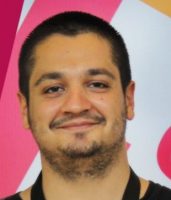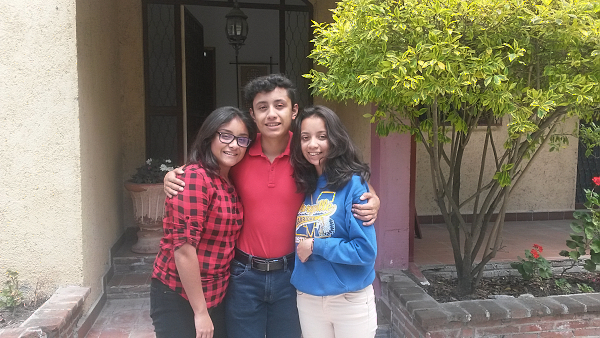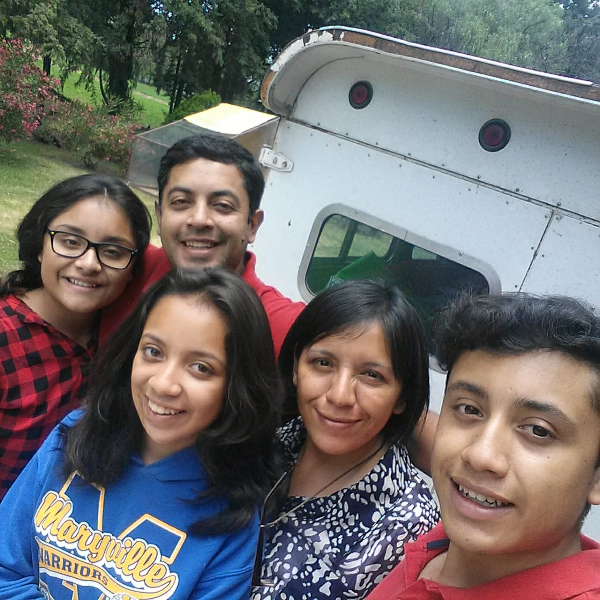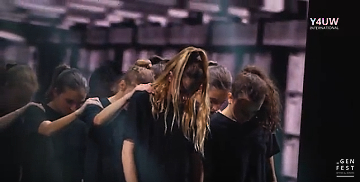9 Aug 2018 | Focolare Worldwide
While tens of thousands of youths from almost 200 dioceses throughout Italy are on their way to Rome for the meeting with Pope Francis on 11-12 August, the two-day programme was presented. About 70,000 young people will meet the Pope on Saturday at the Circo Massimo, for a “face-to-face” dialogue, to be followed by a prayer-wake in the spirit of the synod of October dedicated expressly to the youth. During the night some Churches along the Circo Massimo-St. Peter route will remain open not only for personal and community prayers, and confessions, but also testimonials, performances and theme encounters. On Sunday morning in St. Peter’s Square, Mass will be celebrated, followed by a new meeting with Pope Francis who will consign his missionary mandate to the youths and bless the gifts which the Italian delegation will bring to the World Youth Day in Panama in January 2019.

8 Aug 2018 | Focolare Worldwide

Tommaso Carrieri, co-founder of the association “Not from war”

7 Aug 2018 | Focolare Worldwide
 Together with their three children, four years ago Edgar and Maquency moved to “El Diamante”, the Focolare’s little city 50 kilometers from Puebla, and close to 170 kilometers from Mexico City. Although only a couple of dozen inhabitants, each year a few thousand visitors come to this land, which has a culture of sharp contrasts, including modern, well-populated cities and vast surrounding areas. The little city is a true point of a diamond, the beating heart of the Focolare Movement that Chiara Lubich founded in 1990. It is a place that bears witness to how Gospel life can become enculturated if it is based on dialogue and mutual exchange between diverse cultures. “We decided to move to the little city with our three children to contribute in a practical way. We landed here after responding to a real and true call from God to build the city togethe rwith others,” says Edgar. “For us, making ourselves available was a way to pay back all the love that has been given us ever since we heard about the ideal of unity,” Maquency adds. “Recently,” says Edgar, “we were trying to make ends meet, which was difficult without having a steady job. During our first year in the little city, I had different carpentry and plumbing jobs, and then I worked as a house painter to support our family. After that, discussing it with Maquency and the other focolarini, we decided I would go and search for other income in my field, engineering. After some time, I found a job in a city 90 kilometers from the little city. The work was good, and I was happy, but there was always that feeling that I was far away from home, my family and the little city.” Then another opportunity arose in a nearby city. “Talking about ita t home, we decided to accept the job. At first it seemed a good option, but after a few months of working at that business, I realised that things were not quite what they seemed and gave my notice. “I then went back to the little city and dedicated myself to silk-screen printing. It felt like I had gone backwards. “Instead just after that, an unexpected job offer came up as a consultant for a project. I was immediately hired, and I really enjoyed the work and the pay was good. Finally we were able to have financial stability in our family.”
Together with their three children, four years ago Edgar and Maquency moved to “El Diamante”, the Focolare’s little city 50 kilometers from Puebla, and close to 170 kilometers from Mexico City. Although only a couple of dozen inhabitants, each year a few thousand visitors come to this land, which has a culture of sharp contrasts, including modern, well-populated cities and vast surrounding areas. The little city is a true point of a diamond, the beating heart of the Focolare Movement that Chiara Lubich founded in 1990. It is a place that bears witness to how Gospel life can become enculturated if it is based on dialogue and mutual exchange between diverse cultures. “We decided to move to the little city with our three children to contribute in a practical way. We landed here after responding to a real and true call from God to build the city togethe rwith others,” says Edgar. “For us, making ourselves available was a way to pay back all the love that has been given us ever since we heard about the ideal of unity,” Maquency adds. “Recently,” says Edgar, “we were trying to make ends meet, which was difficult without having a steady job. During our first year in the little city, I had different carpentry and plumbing jobs, and then I worked as a house painter to support our family. After that, discussing it with Maquency and the other focolarini, we decided I would go and search for other income in my field, engineering. After some time, I found a job in a city 90 kilometers from the little city. The work was good, and I was happy, but there was always that feeling that I was far away from home, my family and the little city.” Then another opportunity arose in a nearby city. “Talking about ita t home, we decided to accept the job. At first it seemed a good option, but after a few months of working at that business, I realised that things were not quite what they seemed and gave my notice. “I then went back to the little city and dedicated myself to silk-screen printing. It felt like I had gone backwards. “Instead just after that, an unexpected job offer came up as a consultant for a project. I was immediately hired, and I really enjoyed the work and the pay was good. Finally we were able to have financial stability in our family.”  When everything seemed to become normal from the financial point of view, Edgar was surprised to be asked to manage the maintenance in the little city, which was quite needed so many years after being built. “My wife and I entered into a new phase of discernment, trying to understand the right choice to make. There were moments of uncertainty and worry, especially when we thought of our children’s future.” “We remembered,” Maquency says, “our early experience that God had us live through. We felt we were being asked yet again, since when God calls, he asks to leave everything and demands an. Exclusive love. He wants us to leave our security in order to put ourselves at the service of others. Yet he also offers us everything, as the Gospel says: ‘No one who has left home or brothers or sisters or mother or father or children or fields for my sake and for the Gospel will fail to receive a hundredfold in the present age.’” “And so we decided that I’d put myself at the service of the little city. When I discussed it with my manager at the business, he exclaimed, ‘If only there were many people like you!’ and he proposed that I work for reduced hours, which matched my needs. I experienced how Providence intervened firsthand and how true the Gospel is.”
When everything seemed to become normal from the financial point of view, Edgar was surprised to be asked to manage the maintenance in the little city, which was quite needed so many years after being built. “My wife and I entered into a new phase of discernment, trying to understand the right choice to make. There were moments of uncertainty and worry, especially when we thought of our children’s future.” “We remembered,” Maquency says, “our early experience that God had us live through. We felt we were being asked yet again, since when God calls, he asks to leave everything and demands an. Exclusive love. He wants us to leave our security in order to put ourselves at the service of others. Yet he also offers us everything, as the Gospel says: ‘No one who has left home or brothers or sisters or mother or father or children or fields for my sake and for the Gospel will fail to receive a hundredfold in the present age.’” “And so we decided that I’d put myself at the service of the little city. When I discussed it with my manager at the business, he exclaimed, ‘If only there were many people like you!’ and he proposed that I work for reduced hours, which matched my needs. I experienced how Providence intervened firsthand and how true the Gospel is.”
6 Aug 2018 | Focolare Worldwide
73 years ago, on 6 August 1945, the horror of Hiroshima, and Nagasaki, three days later, came in the form of an immense flash of light which brought immediate death to hundreds of thousands people, almost all civilians, and many more in the following years, due to the radiations. From those two explosions, not only Japan, but the entire humanity was devastated, and consigned to the world the awareness that nothing would ever be the same. “Never again” is not only a moral warning, but also an absolute need, if we want our planet to have a future of peace and create a world in which the sun is the only symbol of life.

5 Aug 2018 | Focolare Worldwide
 “These words are precious to me, since they are written by Chiara Lubich: ‘I can imagine that all of you . . . feel the full weight of the violence and terrorism that even spreads across entire nations. Young people not much older than you believe that they can change society by kidnapping, killing and committing every sort of criminal act. Without a doubt they never found more positive ideals to live for and let themselves wander onto very dangerous road. Many people are frightened and unable to live at peace. What can we do? What contribution could we give?’ These words perfectly sum up what I’m going through right now. I’d like to share with you what I’m living and how abandoned I feel in this moment, perhaps a bit as Jesus felt when he was abandoned on the cross. This sense of abandonment is something I felt in all four of the detention centers where I stayed and where I found myself among teenagers who were for the most part younger than me. At first these kids frightened me. They were against me and even wanted to kill me. But I tried to get close to them and realized that what they were missing was understanding, a lack of opportunity and, therefore, a lack of love. I’m not trying to justify them, but they also need love and help, only that they looked for it by drawing attention to themselves in the wrong way. But it was the only way they knew. My parents try to live for a united world and, ever since I was a small, I did too. It’s easier when you belong to a community where everyone tries to live in that way. Whereas, for people who are afraid to let themselves love, it’s harder, especially when they see that this love doesn’t correspond to what they see around them, such as thieves and assassins. Nevertheless, it’s only love that cuts through all the limitations and this is the more precious truth, despite of everything I’m living in here. Now these guys come into my cell and ask me for advice or help, especially when they’re going through ugly moments. Some of them even want to know more about Youth for a United World (Y4UW) which I belong to in spite of my situation. Lots of them ask me how I am, if I need anything; one even calls me brother. What I’m living in prison can turn into an invasion of love that little by little spreads where violence reigns, just like gentle rain that penetrates deeper and deeper into the soil…”.
“These words are precious to me, since they are written by Chiara Lubich: ‘I can imagine that all of you . . . feel the full weight of the violence and terrorism that even spreads across entire nations. Young people not much older than you believe that they can change society by kidnapping, killing and committing every sort of criminal act. Without a doubt they never found more positive ideals to live for and let themselves wander onto very dangerous road. Many people are frightened and unable to live at peace. What can we do? What contribution could we give?’ These words perfectly sum up what I’m going through right now. I’d like to share with you what I’m living and how abandoned I feel in this moment, perhaps a bit as Jesus felt when he was abandoned on the cross. This sense of abandonment is something I felt in all four of the detention centers where I stayed and where I found myself among teenagers who were for the most part younger than me. At first these kids frightened me. They were against me and even wanted to kill me. But I tried to get close to them and realized that what they were missing was understanding, a lack of opportunity and, therefore, a lack of love. I’m not trying to justify them, but they also need love and help, only that they looked for it by drawing attention to themselves in the wrong way. But it was the only way they knew. My parents try to live for a united world and, ever since I was a small, I did too. It’s easier when you belong to a community where everyone tries to live in that way. Whereas, for people who are afraid to let themselves love, it’s harder, especially when they see that this love doesn’t correspond to what they see around them, such as thieves and assassins. Nevertheless, it’s only love that cuts through all the limitations and this is the more precious truth, despite of everything I’m living in here. Now these guys come into my cell and ask me for advice or help, especially when they’re going through ugly moments. Some of them even want to know more about Youth for a United World (Y4UW) which I belong to in spite of my situation. Lots of them ask me how I am, if I need anything; one even calls me brother. What I’m living in prison can turn into an invasion of love that little by little spreads where violence reigns, just like gentle rain that penetrates deeper and deeper into the soil…”.
https://youtu.be/6VGaH7_g-H0



 Together with their three children, four years ago Edgar and Maquency moved to
Together with their three children, four years ago Edgar and Maquency moved to 